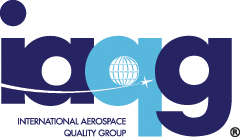The Aerospace Improvement Maturity Model (AIMM) stands out as a powerful tool in the auditing process, providing a structured approach to evaluating a Quality Management System (QMS) maturity that aligns seamlessly with ISO 9001 and 9100 standards. Here’s how AIMM can enhance both pre-audit preparations and post-audit improvements:
Companion to Industry Standards
AIMM is designed to complement the ISO 9001 and 9100 standard, mirroring their structure and requirements. This alignment means that organizations familiar with these standards can easily navigate AIMM’s modules, making it a user-friendly tool for enhancing audit readiness.
Self-Assessment of QMS Maturity
AIMM enables organizations to self-assess the maturity of their Quality Management System (QMS) rather than just its compliance. This assessment focuses on the level of maturity across the selected modules of the model, offering insights into the organization’s certification readiness.
Correlation with Certification Likelihood
While achieving a certain AIMM maturity level does not guarantee certification, a strong correlation exists between higher maturity levels and the likelihood of successful certification. Pilot assessments have shown that organizations with maturity levels around 2.5 and above in AIMM are typically certifiable. Thus, AIMM can provide organizations with an indication of their likelihood of achieving certification based on their maturity levels.
Identification of Improvement Areas
AIMM’s self-assessment process helps organizations identify both strengths and areas for improvement. This information is invaluable not only for audit preparation but also for ongoing efforts to exceed the requirements of the standards.
Framework for Continual Improvement
Beyond the audit, AIMM serves as a framework for continual improvement. By using AIMM to implement best practices and track progress, organizations can demonstrate to auditors that they have a structured approach to improving their QMS, a key requirement of ISO 9001 and 9100.
Enhancing Auditor Confidence
Organizations can present AIMM during an audit as evidence of their commitment to continual improvement. Showing that AIMM is used as a tool for managing and improving processes can significantly boost an auditor’s confidence in the organization’s quality culture.
Post-Audit Utilization of AIMM
After an audit, organizations may have few findings requiring corrective actions. Does this mean that an organization has nothing to do? AIMM can be instrumental in this phase to go beyond compliance by helping organizations identify, prioritize and implement improvements based on the maturity levels of their QMS.
Enhanced correction of Audit Findings
AIMM can systematically enhance the corrections of audit findings, whether they are nonconformities or observations. The framework’s detailed criteria and implementation examples provide a progressive path for corrective actions, ensuring that improvements are relevant and sustainable.
Maintaining Momentum Between Audits
AIMM is not just a tool for preparing for audits; it is also useful in the periods between audits. Organizations can use AIMM to continuously focus on improvement, ensuring they always move closer to their strategic goals. Organizations can use AIMM to continuously focus on improvement, ensuring they always move closer to their strategic goals.
Preparation for Recertification
As organizations approach recertification, AIMM can once again be employed to assess readiness and ensure that any gaps identified in previous audits have been effectively closed. This proactive approach can reduce the likelihood of surprises during the recertification process.
Enhance Audit Readiness and Quality Management Excellence with AIMM
Incorporating AIMM into audit preparation and quality management processes offers a strategic advantage. By aligning with industry standards, providing detailed implementation guidance, and focusing on QMS maturity, AIMM will help teams meet and exceed the requirements of ISO 9001 and 9100. Whether used for pre-audit preparation, post-audit improvement, or ongoing quality management, AIMM is a powerful tool that can enhance the ability to achieve and maintain certifications, demonstrating a commitment to excellence in quality management.



